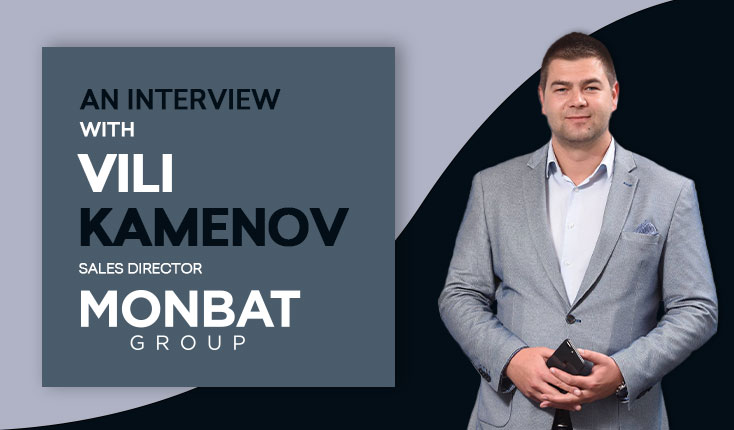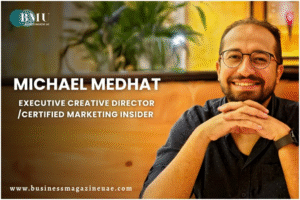
The overview provides a comprehensive insight into the current state and future trends of the SLI battery market. The interviewee Mr. Vili Kamenov, representing Monbat, a battery manufacturing company, shares perspectives on market dynamics, sustainability efforts, innovations, and the impact of emerging technologies. Key highlights include the continued relevance of lead-acid batteries, advancements in SLI battery technology, and their role in various automotive sectors. The discussion also touches on the influence of changing regulations, consumer preferences, and the circular economy. The interview concludes with a focus on resilience in the face of global disruptions, the potential expansion of lead-acid batteries into energy storage, and the importance of partnerships for innovation and competitiveness.Current Landscape and Future Trend
We started the interview by asking, “How do you perceive the current landscape of the SLI battery market, and what major trends do you anticipate shaping its future?”
Vili Kamenov replied, “Based on our 2023 results, SLI market remains alive and kicking. Of course, there are some changing trends in our closest market and main region – Europe (due to the EV policies and stimuli) – but Middle East, Africa and Americas remain with constant demands for conventional SLI batteries. Also, our deep cycle batteries remain in high demand. I would rather predict good results for the coming, say, 5 years. Of course, there’s some price pressure but we are controlling the process with precision in cost control and supply chain optimization.”
Business Magazine UAE: Give us one word that describe you the best.
Vili Kamenov describes himself as: Systematic.
Driving Sustainability
Business Magazine UAE: With the growing emphasis on sustainability, “how do you see advancements in SLI battery technology contributing to more environmentally friendly automotive solutions?”
Vili Kamenov replied, “Worldwide, lead batteries reign as the most recycled consumer product and the most sustainable battery technology with a remarkable milestone of 99% recycling rate. Still, we are doing our best to bring better and more endurable batteries to market – SLI battery life is being 30% longer in the last 20 years. Moreover, we are not alone in our efforts – the ‘start-stop’ systems of the new cars, combined with durable AGM-batteries are reducing the exhaust greenhouse gases significantly.
But there is more we strive to do – we at Monbat are working sustainably to reduce our carbon footprint from the process of recycling to the final manufacturing processes of the batteries. Using less natural gas and electricity is a continuous process in our innovation strategy.”
Powering the Evolution
Business Magazine UAE: As electric vehicles gain popularity, “what role do you believe SLI batteries will play in the overall evolution of the automotive industry?”
Vili Kamenov replied, “Actually, SLI batteries remain important for all scales of mobility. First, EVs need the so-called auxiliary batteries, which are based on ‘classic’ lead-acid batteries. Second, the electrification in mobility is a trend but the competition with other fuel technologies remains a vibrant process. Especially in road transportation, where heavy trucks and buses still rely on combustion engines, hence, need large batteries, mainly used in strings to supply 24V. Emerging regions globally rely on cheap and effective transportation and that would not change so fast. Third, the demand for EV batteries is currently so big, that a lot of researchers and producers work on newer generation of EVs using hybrid battery systems, featuring both li-ion pack AND a deep cycle semi-traction battery. All these and other factors appear to be part of our stable market perspective.”
Promising Breakthroughs in SLI Battery Technology
Business Magazine UAE: Then we asked, “Are there specific innovations or breakthroughs in SLI battery technology that you find particularly promising for addressing current challenges or limitations?”
Vili Kamenov replied, “Maybe it may seem a paradox to many people, the dominant technology in SLI, lead-acid, which is 200+ years old, is still being constantly innovated. It seems to remain so in the future, too. Most of these novelties are rarely vivid for the end consumers but they are benefiting from their implementation. Monbat’s philosophy is to make the path from the lab to the store as short as possible. Let’s make an example with the AGM (absorbed glass-mat). The technology was invented in the early 1980s and till the end of the decade was considered avant-garde technology used by the air force. Today, it’s practically in every new car and Monbat might have helped with that as we were one of the first European producers to invest in this technology early 2000’s. Later on, EFB technology quickly became the alternative choice of most vehicle manufacturers with entry level Start-Stop systems, too. Vehicles today are specially designed to meet and exceed the requirements of those systems. The new extended range of MONBAT Start/Stop AGM and EFB series features carbon technology additives for greater dynamic charge acceptance bringing the latest OEM trend to the aftermarket.
But going back to the question about future developments – I think that the use of nanomaterial’s, particularly the carbon nanotubes (CNT) will be the next big step in making batteries better, i. e. improving both their performance and life expectancy. Monbat is already producing CNT in the A.R.T. Monbat facility and is intensively testing CNT additive in the industrial batteries range – the results are promising and probably soon the ‘ordinary’ SLI battery might last 50% longer in service.”
Navigating the Regulatory Landscape
Business Magazine UAE: We further asked, “How do changing regulations and standards, both globally and regionally, impact the development and adoption of SLI batteries in the automotive sector?”
Vili Kamenov replied, “Recently, batteries as an important part of both transportation and power & energy sector are subject to more intensive interest in terms of carbon footprint and recyclability and consumer safety in many national and international legislation systems. SLI in particular are seen as less problematic, as the market is dominated by lead-acid batteries, which are most likely to be gathered and recycled. Of course, this does not mean that they are out of concern. Monbat is addressing the changing regulatory environment in a client-friendly way. We stimulate all our partners and dealers to offer eco-price for the new battery, when the old one is brought back for recycling. It is a small discount but creates motivating impulse for the end users to gather and dispose their used batteries properly.”
Navigating the Future with Embracing Innovation
Business Magazine UAE: With the increasing demand for connected and autonomous vehicles, “how do you envision SLI batteries adapting to meet the power requirements of these advanced automotive systems?”
Vili Kamenov replied, “The development vector of the ADAS is still ‘too short’ for proper forecasting to be made. Therefore, if we assume that the autonomous vehicles will be EVs, we will be targeting their need of auxiliary batteries. Yet, such development will also require proper (safe) infrastructure. Therefore, it is too early to start ‘worrying’ about these implications on the global scale.”
Business Magazine UAE: Can you share insights into the impact of emerging technologies, such as solid-state batteries or advanced materials, on the SLI battery market?
Vili Kamenov replied, “There are developments in the field mentioned and, probably, in the future we will see such batteries on the mass market – with longer life, weighing less and performing better. Currently, these products are still very expensive and the cost pressure in the automotive market is still well serviced with the proven lead-acid batteries.”
Adapting to Evolving Trends
Business Magazine UAE: How are market dynamics and consumer preferences influencing the design and manufacturing of SLI batteries for different types of vehicles, including traditional combustion engine vehicles, hybrids, and electric vehicles?
Vili Kamenov replied, “Monbat is globally operating company, and our products are presented in over 90 countries. As already mentioned, one of our strengths is to adapt our products to the requirements in line with development in the broad automotive sector. The primary task will be to answer the growing energy consumption in the vehicles. In the coming years around 80% of newly manufactured cars will be equipped with a Start-Stop system to reduce fuel consumption and CO2 emissions by turning off idling engines. Supporting Start-Stop systems is just one of the required battery functions as new cars are equipped with an increasing number of ‘power-hungry’ luxury features – navigation systems, multimedia displays, Wi-Fi, and smartphone interfaces. Monbat is investing in new state of art production facilities for AGM batteries and aiming to start production in Q4 2024. This will support the future strategy to become one of main producers of AGM batteries in Europe able to meet growing market demands with annual capacity of over 2 000 000 AGM units.”
Circular Economy Initiatives
Business Magazine UAE: We were curious to know about the circular initiative of monbat so we asked, “In the context of the circular economy, how are manufacturers addressing the recycling and disposal challenges associated with SLI batteries, and what innovations are being explored in this area?”
Vili Kamenov replied, “The vertically integrated business model of the Monbat Group includes four major functions across the entire supply chain – from the extraction of the raw materials for recycling, through the logistic processes for supply to the recycling facilities, the recycling process itself (lead and lead alloys and polypropylene), to the production and sale of batteries on the market. The premise behind this type of organization of economic activities is based on the principles of circular economy. The company aspires to implement it across the entire supply chain and the entire industry. From the product design and technology, through the new business models and new approaches to conservation of natural resources (extending battery life by 30-35% over the past 20 years), the transformation of waste into resources (recycling as much as possible of the raw materials applied in the batteries) to the models of consumer behavior gaining wider acceptance – the entire industrial context has been steering in a direction followed by Monbat over the past 25 years already.
Our main goal for the near future is to implement a new process of ‘washing’ battery separator bulks, which are classified as hazardous waste. This will help us transform them into non-hazardous RDF and sell them as energy source to the industry, e. g. to the cement manufacturing sector.”
Navigating Global Supply Chain Challenges
Business Magazine UAE: As the global supply chain faces disruptions, “how do you perceive the resilience of the SLI battery industry and its ability to adapt to changing market conditions?
Vili Kamenov replied, “Considering the turbulent developments in the post-COVID year 2021, when we witnessed the combined negative effect of utility prices and logistics price boom, now we are mastering such scenarios with better degree of preparedness. Flexible planning and close business relations to key suppliers and customers pay off in this regard. We are a proactive partner and keep supporting our partners with services and solutions – from know-how to attractive merchandise and commercial strategies.”
Diversifying Roles
Business Magazine UAE: With the increasing focus on energy storage solutions, “do you see opportunities for SLI batteries to play a role beyond traditional automotive applications, such as in stationary energy storage or renewable energy integration?
Vili Kamenov replied, “Our Monbat Deep Cycle range is specially designed for powering electrical equipment for longer periods of time with increased ability of deep discharge cycles but also suitable for application in energy storage solutions. Still, we have a specialized industrial battery division, which offers solutions for energy storage and reserved power and soon will launch battery energy storage systems (BESS) for both household and industrial application.”
Fostering Innovation and Resilience
Business Magazine UAE: How are partnerships and collaborations shaping the competitive landscape of the SLI battery market, and what role do they play in fostering innovation and addressing industry challenges?
Vili Kamenov replied, “Good-minded and long-term partnerships and collaborations are essential in every aspect of our business model. It is a systematic effort and requires intensive work. But staying in the focus of your question, I would say that our advantage of flexibility in developing and launching new products remains our unique selling proposition – be it a new product in our ranges or customized product – we strive to meet and exceed customers’ expectations. Even in a ‘disillusioned’ market of SLI batteries (which is perceived mainly a commodity product), the brand Monbat matters with quality and innovation.”
Closing Thoughts
Lastly we asked, “Would you like to say anything to the viewers?”
“We have been in the manufacturing of batteries for the last 65 years and looking back to the roots of our business, I must say that the lead-acid batteries today mainly share the lead with their ‘great grandparents’ – so much has changed ever since and we are looking forward to the next innovations. But the most important aspect in the future will be the change in our understanding for the battery business – currently; our company is being in repositioning process where we want to be also positioned with our products in the sector with power & energy solutions, which is rapidly changing world of mobility and energy. I believe, the perspective for Monbat is quite promising to achieve this!” Vili Kamenov concluded
Connect Vili Kamenov on Linkedin
Visit Monbat Group to learn more about it








